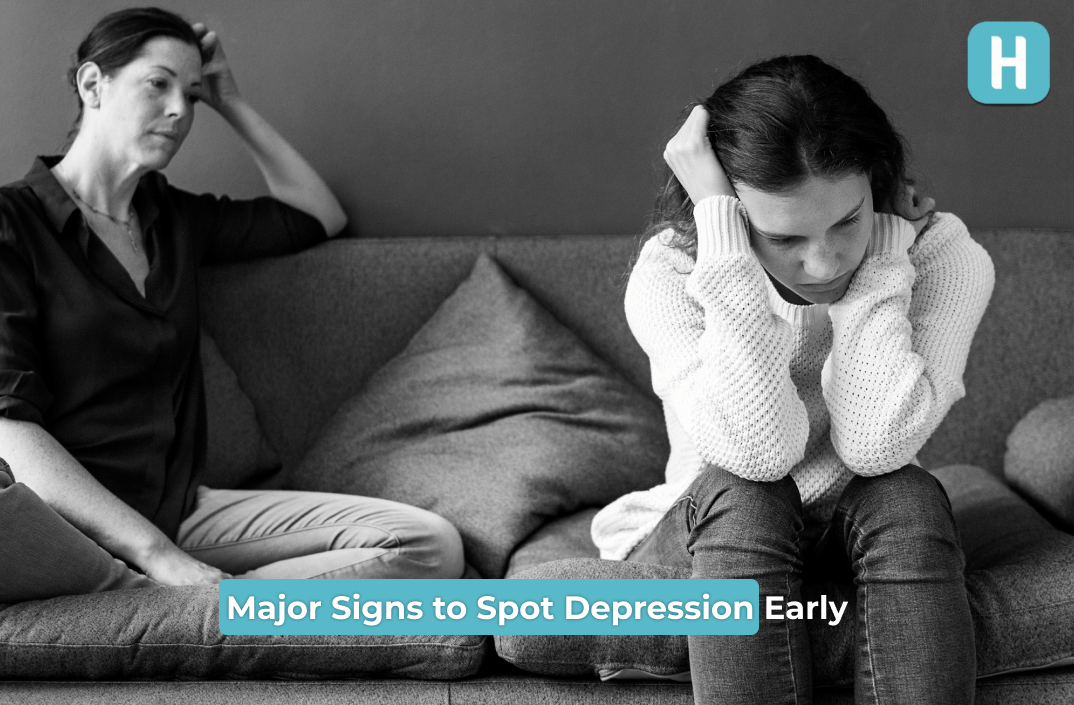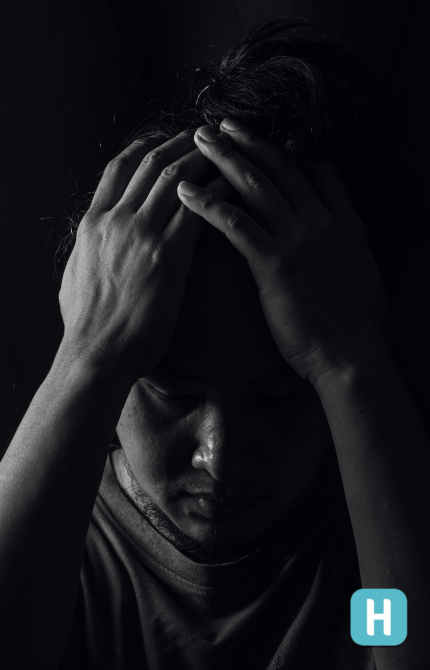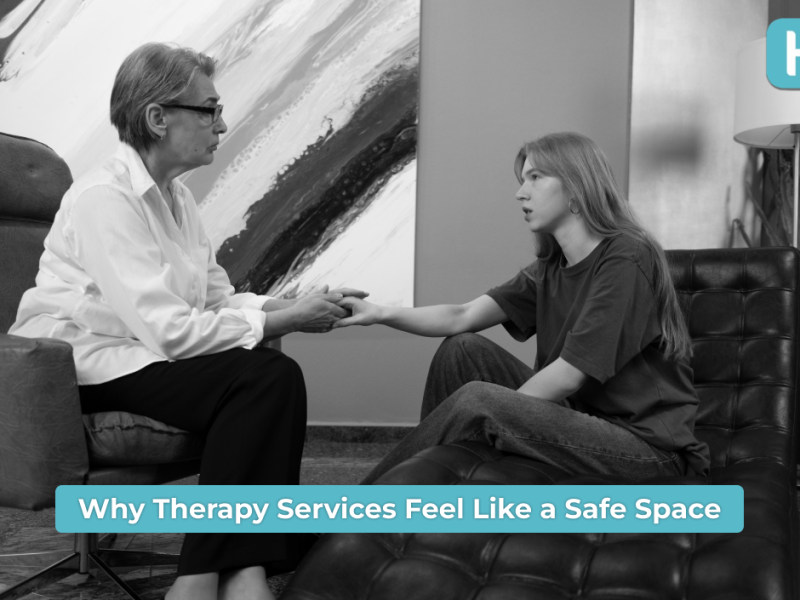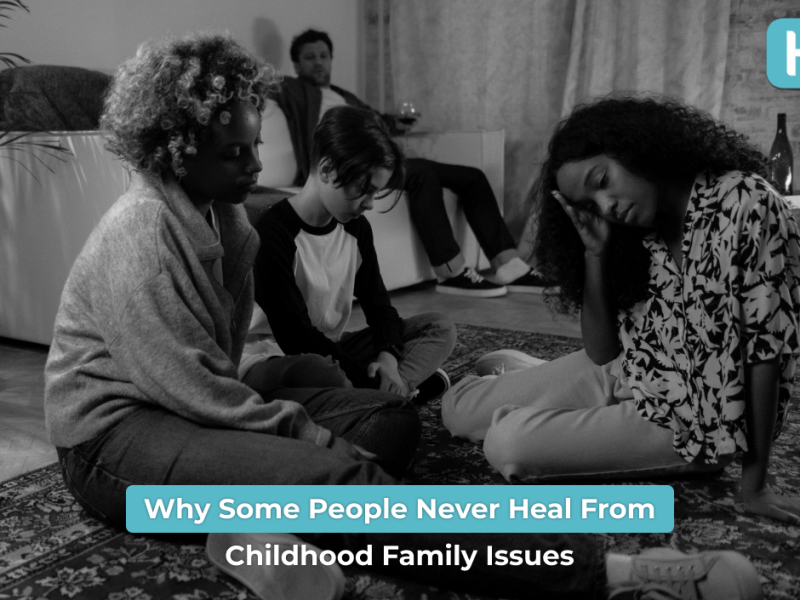And Why It’s Not Always What You Think
Let’s get honest. Depression doesn’t always look like lying in bed crying for hours. Sometimes, it looks like showing up for work every day, saying “I’m fine,” and laughing at memes… while quietly falling apart inside. And that’s what makes depression so dangerous—it’s invisible until it’s everywhere. But if you know what to look for early on, you can take back control before it steals your joy, your health, and your sense of self. This article isn’t here to throw clinical terms at you. It’s here to talk to the version of you that’s secretly wondering:
Am I depressed? Or just tired? Burnt out? Moody? Lonely?
Let’s find out—together.
You Don’t Feel Sad. You Feel… Nothing.
One of the first signs of depression isn’t sadness. It’s numbness. You’re not crying. You’re just disconnected. The things that used to make you laugh don’t even spark a reaction anymore. The stuff you used to care about now feels like someone else’s life.
“I don’t feel sad. I don’t feel anything. And that scares me more
than sadness ever could.”
If you’ve been floating through your days like a ghost, please know: this is not your personality changing. It’s your mind quietly waving a red flag.
According to the World Health Organization, depression is now the leading cause of disability worldwide. Yet over 60% of people suffering from it never seek help.
Why? Because they don’t recognize the warning signs of depression in time. Let’s break down the most common (and often ignored) signals.
You’re Tired, But Not in a Way Sleep Fixes
Another early sign of depression?
You wake up tired. You go to bed tired. You rest, but you never actually rest. It’s not laziness. It’s not being “unmotivated.” It’s your brain running on survival mode. Constantly overthinking. Constantly criticizing. Constantly overwhelmed. No one sees the war you’re fighting inside—because you’re still functioning. But you know. You feel it in your bones.
And if you’re asking, “Why am I always tired?”… this might be your answer.
You Snap Over Nothing, and Then Feel Guilty About It
If you’ve been losing your temper more easily than usual, you’re not just moody. Irritability is one of the most overlooked signs of depression, especially in men and teens. You might lash out, not because you’re angry, but because you’re mentally tapped out. Every little thing feels like too much. And then comes the guilt spiral:
- “Why did I yell like that?”
- “What’s wrong with me?”
- “I hate this version of myself.”
That version of you? It’s not you. It’s a cry for help.
Nothing Feels Enjoyable Anymore
Maybe you used to love photography, gaming, writing, working out, and cooking. But now? You don’t want to touch it. It’s not that you’ve “grown out of it.” You just don’t feel anything when you do it. It’s like the color has drained out of your world. This is called anhedonia, the clinical word for losing interest in things you used to enjoy. And it’s one of the clearest early signs of depression.
But here’s what no one tells you:
- It’s not about getting your motivation back.
Your Body Starts Speaking the Pain Your Mind Can’t
Headaches. Stomach issues. Chest tightness. Random aches that never seem to go away. You’ve tried sleeping more, eating better, and even getting blood tests. But the results keep saying, “You’re fine.” You’re not fine. Depression doesn’t always start in your thoughts. Sometimes, it shows up in your body because your body is trying to carry feelings that have nowhere to go.
You Start Avoiding People You Love
You love your friends. Your family. Your partner. But lately… You can’t handle being around them. Conversations feel exhausting. Plans feel like pressure. So you cancel, ignore the texts, and make excuses. Not because you don’t care. But because you feel like a burden. Like you’re “too much.” But please hear this: You are not a burden. You’re a human being who’s struggling. And the people who love you? They want to show up for you. They just need to know you’re hurting.
You can’t focus, even on Simple Things
You open a message. You read it. You forget it two seconds later. You stare at the same email draft for 40 minutes. You walk into a room and forget why. No, you’re not losing your mind. You’re distracted by your own thoughts, and your brain is doing all it can to survive.
When people say “Depression fog,” this is what they mean. You’re not lazy. You’re emotionally overloaded. And if you’re still showing up for work, caring for kids, studying, or running a business while carrying all of this? That’s not weakness. That’s the strength of autopilot. But strength shouldn’t mean silent suffering.
Your Inner Voice Gets Cruel
This one’s the hardest to talk about. Because it’s private, and it’s painful.
- “You’re useless.”
- “You ruin everything.”
- “Everyone’s better off without you.”
If you’ve been hearing these thoughts inside your head, please know: They are not true. And they are not your voice.They are the voice of depression. And if they’re starting to sound louder than the voice of reason, please, it’s time to talk to someone.
Start Wondering If the World Would Be Better Without You
Even if you’re not thinking about suicide in a direct way, depression can plant scary, intrusive thoughts like:
- “I don’t want to do this anymore.”
- “What’s the point?”
- “I wish I could disappear.”
These aren’t attention-seeking. They’re pain-seeking relief. If this is you, don’t wait for things to get worse. This is your sign to reach out. There are people, right now, who are trained to help you through this. You’re not alone. Not ever.
What Depression Looks Like in Teens
This is important. Depression signs in teens don’t always look like sadness.
Instead, it shows up as:
- Extreme mood swings
- Aggression or shutdowns
- Skipping school or slipping grades
- Suddenly hating themselves or their appearance
- Saying “I’m tired” all the time
And the worst part? They often don’t have the words to explain it.
So if your child, sibling, or student seems like a different person lately… listen closer. Look deeper. Ask gently. Be patient.
“I Thought I Was Just Failing at Life”
Ali, 27, described his experience this way:
“I wasn’t crying. I wasn’t suicidal. I just hated everything. I hated waking up. I hated how I looked. I hated how I felt about people. But I kept pushing through because I thought that’s what adults do. Until one day I found myself staring at the wall for hours… and I didn’t know how to move anymore.” Turns out, Ali was in the middle of a depressive episode. He just didn’t know it had a name.
“Getting help didn’t solve everything overnight. But it made me realize—I wasn’t broken. I was hurting. And healing is allowed.”
Ask Yourself…
If you’ve made it this far and feel like this article was too relatable, that’s a sign in itself.
Ask yourself:
- “Have I felt like this for more than two weeks?”
- “Is it getting harder to pretend I’m okay?”
- “Do I recognize myself anymore?”
If you’re answering yes, you don’t need to self-diagnose. You just need to take one small step toward support.

So, What Should You Do?
- Speak it. Say it out loud to someone. Silence fuels shame. Speaking kills it.
- Write it down. What are you feeling? What’s been changing? Writing helps make it real.
- Reach out. A counselor. A support group. A helpline. A friend. You don’t need a full plan. You just need a lifeline.
- Don’t wait to “get worse.” Early help is the best help.
You’re Not Alone, and You’re Not Hopeless
Depression lies.
It tells you you’re unlovable. That thing won’t get better. That no one cares. But here’s the truth:
- You are not too far gone.
- You are not weak for feeling this way.
- You deserve help. Even on your worst days.
“Sometimes the bravest thing you’ll ever do… is keep going.”
And if all you did today was read this and feel seen? That’s a win.
When “Just Get Over It” Doesn’t Work Anymore
You’ve heard it before. Maybe from friends, family, or even your own inner voice:
“Just go out more.”
“You need to be more positive.”
“You’re thinking too much.”
But here’s the truth: You can’t ‘positive think’ your way out of depression. It’s not a mindset issue. It’s an emotional wound that needs care, attention, and space to heal. Imagine breaking a leg and someone says, “Just walk it off.”
That’s what it feels like when you’re told to “snap out of” depression.
Depression Doesn’t Look the Same for Everyone
Another reason so many people miss the signs?
Depression wears different masks for different people.
- For some, it looks like crying in the shower and missing work.
- For others, it’s working 60 hours a week just to avoid being alone with their thoughts.
- And for many? It’s smiling in front of others, then breaking down in silence.
That’s why it’s so important to not only look out for how you feel, but also how you act when no one’s watching.
You might not even realize you’re avoiding your own reflection.
You might not notice how long it’s been since you truly laughed.
You might not realize that your silence is actually screaming for help.
Mask of “Functioning Depression”
There’s a name for what so many people experience: High-functioning depression. You’re doing “okay” on the outside. You show up, reply to emails, attend meetings, and help the kids with homework.
But it feels like you’re walking through wet cement every day.
- You cancel social plans with a polite excuse.
- You tell people you’re just “tired.”
- You smile in photos but feel hollow when the camera clicks off.
This kind of depression is especially dangerous because no one sees it—not even you, sometimes.
Guilt Spiral No One Talks About
And when you do start to notice something’s off?
The guilt kicks in.
“I have a roof over my head. I shouldn’t feel this way.”
“Other people have it worse. I should be grateful.”
“I’m just being dramatic.”
But comparing pain doesn’t make your pain any less real. You’re not being selfish for struggling. You’re being human. Guilt has a way of convincing you that you don’t deserve help. But that’s a lie depression loves to tell.
You Start to Forget Who You Used to Be
This part hits hard. Somewhere along the line, you stop recognizing yourself. You might look back at old photos and think, “Who was that person?” Someone who laughed. Dreamed. Danced. Created. Believed in things. Now? You’re just surviving. It’s okay to miss who you were. It’s okay to feel disconnected from that version of yourself. And it’s okay to want that version back. But here’s the beautiful truth: You’re not lost. Just hidden under the weight of what you’re carrying. And with help, you can come home to yourself again.
If You’re Still Reading, This Is Your Sign
You didn’t click on this blog by accident. Maybe something in your heart whispered, “I need to know if what I’m feeling is real.” Maybe you were looking for permission to stop pretending. Whatever brought you here, I want you to hear this loud and clear:
- You are not imagining things.
- You are not too sensitive.
- You are not a burden.
And no, you don’t need to wait until you break to reach out for support.
You Deserve to Heal Before It Hurts More
One of the biggest myths about depression?
That you have to “hit rock bottom” before you get help.
But would you wait until your car explodes to fix the engine?
Would you let a small wound fester into an infection before seeing a doctor?
No.
You heal early because it’s easier, safer, and more effective.
The same applies to your mental health.
Don’t wait for your world to fall apart. Start the healing process now. Even if you’re not sure what’s wrong. Even if all you can say is, “Something feels off.”
That’s more than enough.
Depression Doesn’t Discriminate
It can hit anyone. The CEO. The single mom. The straight-A student. The stay-at-home dad. The funny friend. The one who “has it all together.” Depression doesn’t care about your job title, income, location, or family background. It doesn’t care how many Instagram followers you have. It shows up in moments when you least expect it. Quietly. Gradually. And sometimes, violently.
But you’re not powerless.
- Recognizing it? That’s power.
- Talking about it? That’s a strength.
- Getting support? That’s courage.
You Don’t Have to Face This Alone
Now that we’ve talked about the signs… let’s talk about the next step. Healing shouldn’t be something you figure out on your own. And it definitely shouldn’t be something you feel ashamed of. That’s where Helply comes in.
Helply: Because You Deserve More Than Just “Getting By”
Struggling silently? You don’t have to. Helply is here to help you feel like you again.
At Helply, we believe mental health support should be:
- Accessible: Online therapy from the comfort of your own space
- Specialized: Matched with counselors who truly get what you’re going through
- Human: No judgment, no cold advice. Just real, compassionate listening.
Whether you’re dealing with anxiety, burnout, relationship stress, or wondering if it’s really depression, our licensed therapists are trained to support you through it all. Because sometimes, healing starts with being truly heard.
You don’t need to have all the answers.
You just need a safe space to ask the questions.
Visit Helply.ae today and take the first step toward feeling like yourself again.
You’re not broken. You’re healing, and we’re here with you every step of the way.
FAQs
Q: What are the earliest signs of depression to watch for?
A: Emotional numbness, unexplained fatigue, mood swings, and disinterest in hobbies or people you care about are often the earliest signs.
Q: How do I know if it’s depression or just burnout?
A: Burnout is usually tied to one area (like work), while depression bleeds into everything. If your joy, energy, and self-worth are vanishing, don’t ignore it.
Q: What are some depression signs in teens specifically?
A: Watch for increased irritability, withdrawal from family, a sudden drop in school performance, and frequent comments like “I’m tired” or “No one understands me.”
Q: Is it okay to get help even if I’m still functioning?
A: Absolutely. You don’t have to be falling apart to deserve care. You can seek support even if you’re “keeping it together.”
Q: Where can I get support for depression?
A: Local mental health professionals, support groups, crisis helplines, or even trusted friends and family can be a starting point. Help is out there.
Q: Is depression common in teenagers?
A: Yes. Depression signs in teens often show up as mood swings, school issues, and social withdrawal, not just sadness.



